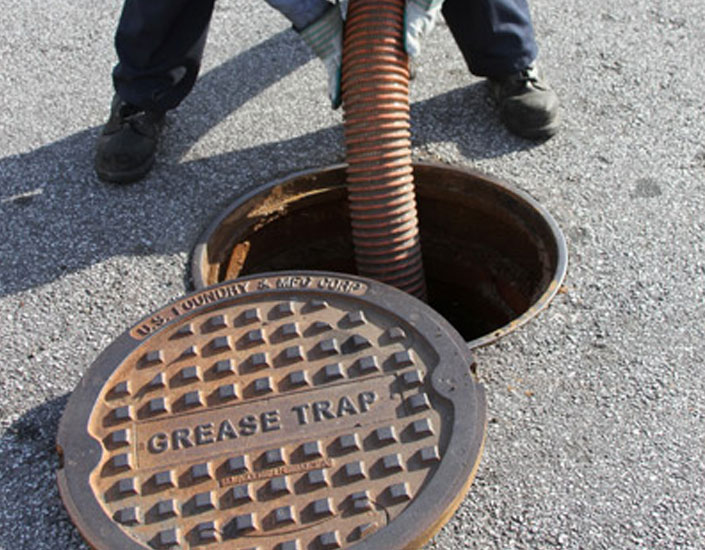
For any commercial kitchen, daily grease trap cleaning is necessary. Many restaurants choose to have a skilled facility management company like Spring Septic perform these specialized services, which are essential to:
Avoid clogs and backups–when too much fat, oil, and grease (or FOG, a common industry shorthand) build up in your grease traps, they can clog. This not only decreases the usability of the traps, but these clogs can also strengthen the device–a serious health risk, particularly in a busy kitchen.
Protect your assets–when it comes to drain backups, you should not underestimate the confusion arising from an overfilled grease trap. These messes can actually be costly to clean up and will often require you to close your doors to customers while doing so. This can be disastrous in an industry with razor-thin profit margins.
Save the environment–grease traps are intended to keep fats and oils out of the sewage system of your building. When these traps spill and lose their ability to collect more oil, much of it ends up running outside, often into large rivers or irrigation fields on the surface. This is very dangerous to the local environment and can give you a heavy booting fine.
Holding a list of service appointments, including the pumping date and how much waste has been removed, will help optimize quality and keep maintenance costs down while avoiding unnecessary downstream appointments. Grease Trap Cleaning is so important to have done regularly. Let’s look at the hood cleaning.
How should I wash the hood in my kitchen?
You will make your restaurant a safer and cleaner environment for both staff and customers by scheduling regular kitchen hood cleaning. This vital service will.

Enhance ventilation–a kitchen ventilation hood’s primary purpose is to take the fumes out of your stovetop, enhancing the air quality for both staff and customers. Such fumes, however, form a greasy residue on the hood over time, which may hinder its ability to work. Even in the busiest kitchen, daily cleaning keeps your kitchen hood strong.
Avoid fires–it may present a serious fire hazard when grease begins to collect in your hood. Think about it: only a few feet away you have a highly flammable substance and a strong heat source. Failure to keep the hood free of grease can jeopardize the workers and company and may result in fines for not-compliance with local or national fire codes.
Maintain hygiene in the kitchen–once that layer of used cooking oil becomes thick enough to accumulate on the roof, it will begin leaking onto the walls, clothes, and even the meals being prepared. No one wants to deal with dry, semi-rancid oil–least of all the customers you bill.